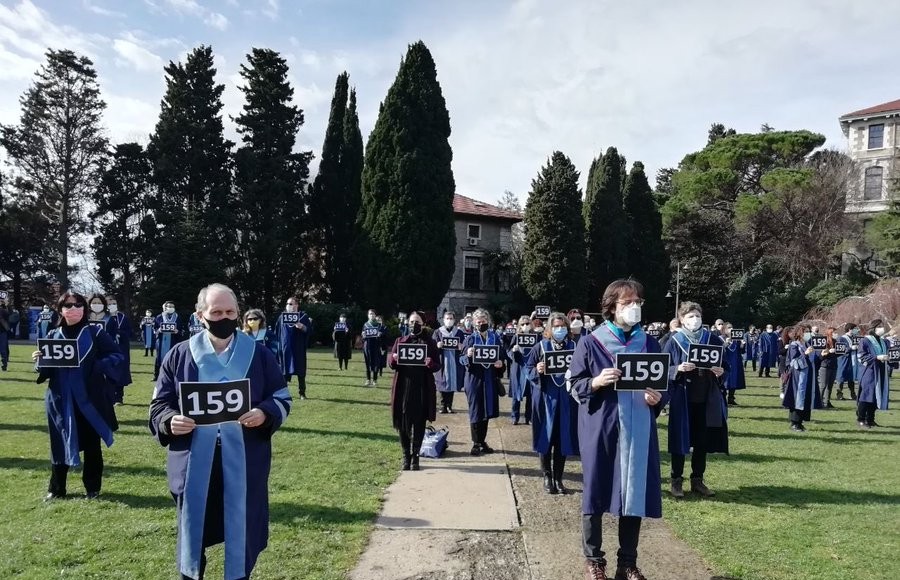Academics with the highest level of productivity are leaving Turkey to continue their work abroad, with 12,000 such academics working in other countries, according to the results of a study, the Dünya business newspaper reported.
The study, titled “Turkish Academic Diaspora Report: From brain drain to brain power,” was published by the Turkish Informatics Foundation (TBV) in a bid to examine the human capital flight in Turkey, also known as “brain drain.”
The study, conducted with the assistance of artificial intelligence by University of Chicago Economics Professor Ufuk Akçiğit and his colleagues, found that scholars with the highest productivity rate are more likely to leave Turkey and that those abroad who have the lowest productivity rate are the ones who are most likely to return.
The study measures productivity by the number of academic papers published and the quality of those papers.
The study found that there are currently 12,000 scholars outside the country.
Furthermore, the study found that after moving abroad, a scholar’s average productivity rate increases by 28 percent.
According to Akçiğit the lack of academic productivity is the most significant problem at Turkish universities, adding that Turkey’s economic problems are caused not by a lack of resources but by not being able to effectively make use of those resources.
The study offers two major ways to make the country attractive for its academics: improving the conditions of research facilities and establishing more networks with scholars abroad.
Akcigit said scholars in Turkey should be given incentives to set up networks with researchers abroad through funding for their research and conferences as well as through partnerships in projects.
Following a coup attempt in 2016, the Turkish government dismissed some 130,000 people from public service, among them more than 30,000 teachers and over 7,000 academics.
The Turkish government is frequently criticized for curtailing academic freedom, with many academics facing legal action, losing their jobs or even going to jail due to their criticism of government policies or for simply expressing their views about a problem in the country.
In a move that curbed academic freedoms further, President Recep Tayyip Erdoğan in October 2016 canceled the intra-university elections that used to be held to elect university rectors. That position is now directly filled by the president.
Erdoğan insisted that the abolition of the election system would be beneficial for the country, although the move attracted widespread criticism in that it will eliminate the autonomy of universities.



